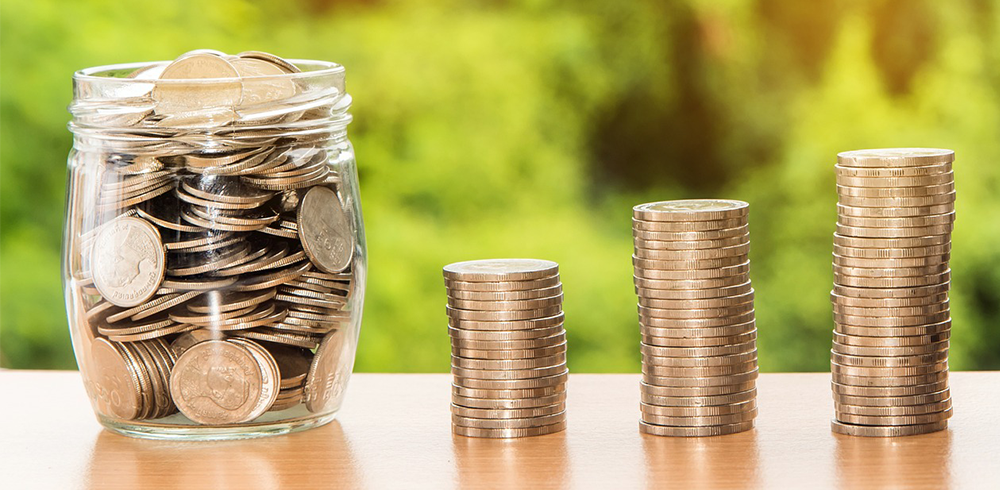Are you worried about defaulting on your loan or have you missed your home loan EMI? Losing even a single payment can lower your credit score unless you make up for the time lag. If you applied for a new credit or loan after you defaulted for six months, it could lead to outright loan rejection by banks. Having an excellent credit score not only impacts your ability to get a bank loan approval, it also determines the interest rates you will pay when borrowing money. In this article, we would learn the importance of credit score and how an excellent credit score can help you.
Credit Score- What Does it Mean?
A credit score is a 3-digit numeric score between 300 and 900. An excellent credit score is higher than 750 but anything lower than 600 requires your attention. Your credit score measures your creditworthiness to any lender; essential factors that affect your credit score include your payment history, number and type of loan accounts, outstanding debts, and length of your experience with the overall credit system. Banks mainly use CIBIL consumer credit data to approve individual or business loans. TransUnion CIBIL Limited is India’s leading credit information company with the most extensive collection of consumer credit information, globally.
Which factors impact credit score?
Your credit score is influenced by several factors including:
Payment History: This is one of the most critical factors affecting your credit score.
Credit Utilisation: This factor looks at how much of your available credit you are using.
Length of Credit History: The length of time you have been using credit plays a role in determining your score.
Types of Credit: Having a mix of credit accounts, such as credit cards and loans, can demonstrate your ability to handle different types of debt responsibly.
New Credit: Opening multiple new credit accounts in a short period can suggest financial instability and may lower your score.
Also Read : How Having Multiple Credit Cards Can Affect Your Credit Score
What Information is Not Considered in Your Credit Score
Here are some significant aspects that credit scores usually do not take into account:
- Your credit score does not consider personal details such as your race, gender, religion, marital status, nationality, or income level.
- While your age and current address are often included in your credit report, they are not factors that directly influence your credit score calculation.
- Your credit score does not take into account any assets you may own such as real estate or investments.
- Your job title, employer, or employment history are also not factored into your credit score.
Benefits of Having an Excellent Credit Score
Here are a few things that a credit score above 750 can do for you:
Lower Interest Rates: When you have an excellent credit score, the amount of money charged for taking out any personal loan, car loan or house loan will be lower because a high credit score reflects your good repayment history to the lender. You apparently save money with lower interest rates on long-term loans.
Higher Loan Limits: A high credit score ensures not just higher loan amounts but also large credit card limits. While you enjoy better purchasing power, if you do not end up using a lot of the available credit, you raise your credit score. As a rule of thumb, by bringing down the credit utilisation level below 30% for six months or 1 year, you can gradually improve your CIBIL score.
Better Insurance Rates: A credit-based insurance score is a score based on your credit history and it is more likely to influence your insurance rates for your house or other property and also affect your auto insurance scorecard. When you have a terrible insurance credit score, you are more likely to file a claim with auto insurance companies.
Better Credit Card Rewards: When you have excellent credit, you can sign up for credit cards with the best cashback and rewards. However, such cards require you to have a favourable credit score.
Employee Screening: CIBIL now partners with employment screening firms to assist prospective employers. According to TU CIBIL, a financially disciplined consumer who pays his debts on time is a better hire than a chronic defaulter who may be more vulnerable to indulging in corporate misuse. Multinational companies, therefore, use credit score data of prospective hires for purposes of compliance.
E-Tailer Offers: Credit Bureau CIBIL has recently tied up with e-commerce firms to assist them with the credit screening of consumer profiles of EMI applicants for consumer durables. An excellent credit score will ensure outright offers while a poor credit rating may lead to rejection of EMI offers.
Credit Score Vs. CIBIL Score
A credit score and a CIBIL score both assess an individual’s creditworthiness but differ in scope and origin. A credit score is a general term for the numerical representation of a person’s credit history and is provided by various credit bureaus. The CIBIL score, specific to India, is one such credit score provided by TransUnion CIBIL Limited, ranging from 300 to 900.
What is Considered an Excellent and a Good Credit Score?
An excellent credit score is usually between 750 and 850. This means you are very reliable with credit, and lenders would offer you the best interest rates and loan terms. A good credit score falls between 700 and 749, showing that you are dependable but not as perfect as those with excellent scores. You would still get favourable loan rates and terms, just not the absolute best. To keep a good or excellent score, pay your bills on time, use credit wisely, and manage your credit responsibly.
How To Improve Your Credit Score?
Here’s how you can improve your credit score:
- Make sure to pay your credit card bills, loan EMIs, or other bills on time.
- If possible, lower your credit utilisation ratio as it would help you significantly increase your credit score.
- Refrain from applying for too many credit cards or loans at a time.
- Always have a mix of credit cards and loans.
- Check your credit report on a regular basis and if there are any errors, get them fixed on time.
Also Read : How To Check Your Credit Report For Free
Conclusion
While the goodness of having an excellent credit score can be many, lousy credit can mess up your life and land you in stressful financial situations. Fortunately, you can avoid losing your credit score by paying your bills on time and keeping your debt low. If you need quick cash to clear a bill, sign up with CASHe today for an instant personal loan credit between ₹10,000 and four lakhs with minimum documentation work compared to the traditional way of applications.
You can repay a CASHe personal loan in 15, 30, 60, 90, 120, 180, 360 or 540 days depending upon your loan amount and maintain your good credit. Learn more about the benefits of an instant personal loan from CASHe App for your small ticket purchases today, and improve your chances of loan approvals in the future.
FAQs
1. Why is my credit score high or low?
Your credit score varies based on timely payments, credit utilisation, and length of credit history. Missed payments and high balances can lower your score.
2. Where can I get my credit score?
You can obtain your credit score from credit bureaus, financial institutions, and online services, often for free or a small fee. Download the CASHe app to check your credit score for free.
3. How is a credit score calculated?
A credit score is calculated using payment history, credit utilisation, length of credit history, new credit, and credit mix.
4. Why do you have different credit scores?
Different credit bureaus and scoring models use varying criteria and data and this results in multiple credit scores.








